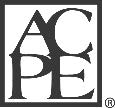Assessing and Acting Upon SDoH in Diabetes
Social determinants of health (SDoH) are linked to diabetes and prediabetes prevalence, poorly controlled diabetes, and cardiometabolic disease disparities leading to national calls to address upstream SDoH to improve health equity. In order to act upon SDoH – either through tailored care delivery or social referral outside of the health system – clinicians must first be able to screen for adverse SDoH, or social risks. While multiple social risk screeners exist, selecting the right screener for the target population and setting can be overwhelming as well as how to integrate screeners into the clinical workflow. This course will provide (1) an overview of SDoH, (2) the impact of adverse SDoH on diabetes outcomes, (3) common social risk screeners currently available, (4) and examples of integrating SDoH risk screening in the clinical workflow in the context of cardiometabolic disease.
This program was funded by a grant provided by the Centers for Disease Control and Prevention, No. 1NU58DP007399-01-00 - A Strategic Approach to Advancing Health Equity for Priority Populations with or at Risk for Diabetes, under a subcontract with the Alabama Department of Public Health.
Target Audience
This knowledge-based course is intended for Pharmacists (ACPE).
Learning Objectives
• Know the differences between SDoH, social risks and social needs and their impact on diabetes outcomes
• Select SDoH screeners based on target population and pharmacy location (e.g. hospital based, community based)
• Develop methods for SDoH screening in pharmacy practice settings including workflow integration
• Identify the current state of the science in social referrals including local efforts to gather community resources
![]() Assessing and Acting Upon SDoH in Diabetes PROGRAM PACKET.pdf
Assessing and Acting Upon SDoH in Diabetes PROGRAM PACKET.pdf
A copy of the presentation slides are located within the course content. Once you have registered for the course, please navigate to the 'Take Course' tab and click the navy blue 'Take Course' button. Navigate to the 'Course Materials' section of the course using the left-hand menu and download a PDF version of the program presentation. Course Materials will be added to the course the week of the live event.
Participants will be provided the webinar link once enrolled in the course by accessing the course content under 'Take Course' - Course Instructions and Course Material. Please use this link to join the live webinar at the scheduled time. All registered participants will also receive an email the day before the program with program information, including the webinar link.
Carrie R. Howell, Ph.D., is a social behavioral scientist whose independent research focuses on using population health methodologies to explore how social determinants, particularly neighborhood level determinants, influence cardiometabolic abnormalities and disparities. Utilizing her training in applied epidemiologic methods, data management/analysis, and outcomes research, she is specifically interested in integrating clinical, social determinant and health behavior data to inform the prevention of cardiometabolic disease to reduce health disparities among socially vulnerable, low SES populations. This includes incorporating SDoH data into risk prediction models to aide in stratifying populations based on both social and clinical parameters as well as exploring how social risks cluster within individuals. The end goal is to use this information to inform clinical care and intervention targets. She is currently pursuing multiple cardiometabolic-related studies that include (1) evaluating adding SDoH measures to a validated diabetes risk prediction model to improve risk stratification; (2) examining associations between clinical markers, individual and neighborhood level SDoH and major cardiovascular events; (3) conducting a mixed methods study in emerging Latino communities to examine the influence of community-level factors and of the COVID-19 pandemic on diabetes-related behaviors; and (4) using patient reported electronic medical record (EMR) data to examine social risk clusters associated with diabetes and obesity.
 Auburn University is accredited by the Accreditation Council for Pharmacy Education as a provider of continuing pharmacy education; credits are recognized nationwide. The Universal Activity Number for this knowledge-based program is 0001-9999-24-012-L01-P and is intended for pharmacists.
Auburn University is accredited by the Accreditation Council for Pharmacy Education as a provider of continuing pharmacy education; credits are recognized nationwide. The Universal Activity Number for this knowledge-based program is 0001-9999-24-012-L01-P and is intended for pharmacists.
Available Credit
- 1.00 ACPE PharmacyAuburn University is accredited by the Accreditation Council for Pharmacy Education as a provider of continuing pharmacy education; credits are recognized nationwide.

 Facebook
Facebook X
X LinkedIn
LinkedIn Forward
Forward